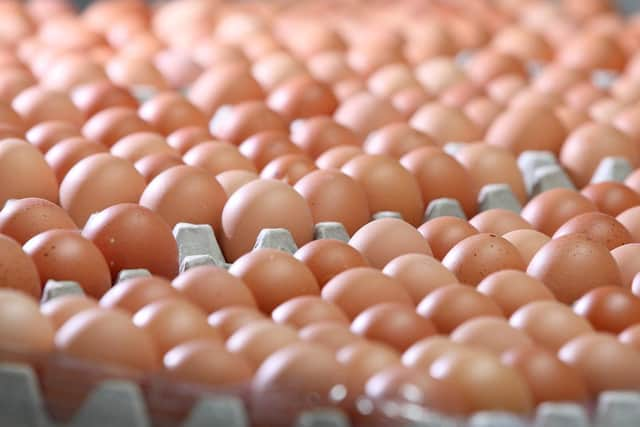Producer and farm investment needed
and live on Freeview channel 276
Critical discussions took place with Prime Minister Rishi Sunak and the Secretary of State for Environment, Food and Rural Affairs (DEFRA) Thérèse Coffey, about food security. It was positive to see that domestic self-sufficiency was on the political agenda for the Prime Minister with a key focus being on the need to identify further opportunities to boost growth, drive innovation and improve sustainability at all stages of the farm-to-fork process. Furthermore, there was also a strong recognition of the importance of farmers at the summit.
Now, a few weeks later, government’s ideas for a voluntary price cap on foods sold through the retailer network have surfaced. A development which is incredibly unsettling and disheartening.
Advertisement
Advertisement
There is no place for any more pressure on our farmers because of the extremely thin margins, extremely high input prices for things like energy and fertiliser, and the enormous losses being generated in certain food commodities. Otherwise, our sector will continue to collapse. That has already been observed in the egg industry, and due to the high costs of labour and energy, the dairy, fruit, and vegetable industries are also under significant strain.


Every significant store in the UK has already lowered the selling price of milk and butter in the previous month which is working its way back to the farmgate with dairy farmers being left to take the hit. It is also working its way into the retail inflation figures. The goal of combating food inflation should be to increase domestic food production instead of importing supplies. We really need to be working towards a fairer distribution of value. Cheaper food could also create costs elsewhere, for example, by promoting lower quality that can negatively impact people’s health or by exporting environmental degradation.
Instead, the government should be making investments in farms and producers. Not everyone experiences the margin pressure equally. As a result, many farmers are finding it difficult to pay for feed, fertiliser and other operating expenses. It is crucial to aid food producers during this period. They are essential to both a healthy world and a healthy population. Our economy might also benefit greatly from investment in agriculture.
The food supply chain relies on the goodwill of farmers to accept low margins from retailers, sometimes even prices below the cost of production are essential to the food supply chain. However, this is no longer feasible due to rising expenses and the need for fresh investment in modern, sustainable agricultural methods. Simply put, the losses are too great to continue.
Advertisement
Advertisement
If the Prime Minister is sincere about promoting UK agriculture, he should reconsider this idea or at the very least make it very clear that any price ceiling implemented cannot interfere with our farmers' ability to receive a fair price for the food they grow.
The inquiries into pigs, eggs and horticulture reflect the prime minister's desire to see fairness in the supply chain. To preserve supply, fairness begins by assisting and properly paying primary producers. If there is no supply owing to a lack of profitability, as we have seen with some sectors, then the rest very rapidly comes apart and bare shop shelves become a reality.